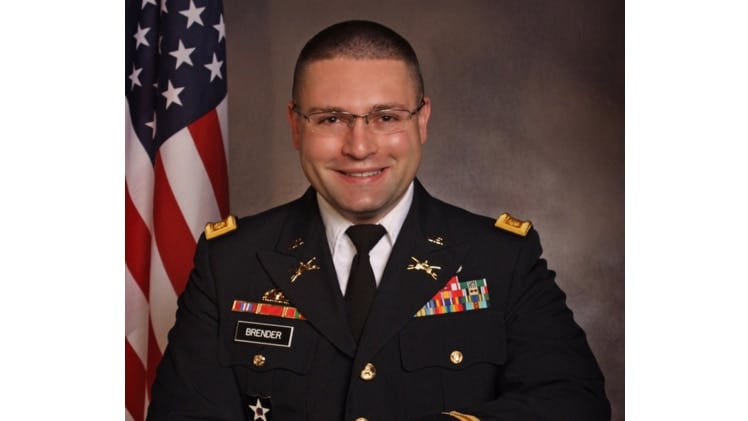Editor's note: The following is an opinion piece. The writer is not employed by Military Times and the views expressed here do not necessarily represent those of Military Times or its editorial staff
By the time she sat down with me, the sergeant had already put in a more than full day.
She had been up for physical readiness training at 0630, worked 10 hours at her job as a ceremonies noncommissioned officer for the National Training Center at Fort Irwin, California, and, after finishing our talk, had set aside just enough time for a "quick" drive to Las Vegas, two hours away, to attend to family before starting it all over again the next morning.
As tired as I knew she was, though, she had an air of energy. Of course, she couldn't afford to let any fatigue show in front of me, or the majority of her other colleagues.
"I have always had to outdo a male to get what I want," said the 27-year-old motor transport specialist and Orange County, California, native. It's a remark that echoed what others like her have said for years: In the military, being just as good as a man just isn't good enough.
I had invited her and several other female soldiers stationed at Fort Irwin to speak with me about their military service. Frankly, I had expected the entire conversation to go something along the lines of that opening statement. In her next breath, though, the sergeant surprised me: she said we are looking at the issue of women in the military all wrong.
By asking what challenges women face, I had framed the conversation with the implicit assumption that being a woman in the Army is a shortcoming—and it's a false assumption. According to the NCO, we must replace our current dialogue with a better one, a conversation that focuses on who men and women are together.
Joining her for our discussion were two female officers, one of whom pointedly said that men should stop seeing women as threats. In her opinion, much of the antagonism toward expanded roles for women has less to do with competence and more to do with the fear that traditionally masculine niches, and by extension the worth of individual men, are being threatened.
It’s a fear based in utter nonsense, she said. For instance she, a happily married woman, was quick to say that she appreciates masculinity in the Army, particularly that of her also-serving husband. To them, her military service is not a challenge – if anything, it is a bond of common experience that strengthens their relationship as a married couple and as compatriots in arms.
The other officer, a 31-year old first lieutenant, suggested a new tone regarding women in the military: Focus on what they bring to the fight.
From her experience, female Army leaders are more inclined to "dig in" to complex problems, investing additional time to understanding the heart of an issue before attempting to solve it. The sergeant concurred: Based on her own interaction with two former female leaders, she admired them for seeming to more intrinsically value critical thinking.
In honest admiration, both the sergeant and first lieutenant agreed that rapid, forceful, intuitive decision-making, something they more associated with men, was an indispensable martial skill. However, the lieutenant made it clear that only gender cooperation could tap into an organization's true problem-solving ability, saying in no uncertain terms, "We are better together."
The other officer focused on leadership. She said she believes that women, by and large, seem to place a higher premium on soldiers' individuality. While the mission will always come first, the personal interests, welfare and achievement of subordinates are very high priorities to female leaders.
In what she calls "seeing below the surface," women tend to put substantial personal effort into learning what motivates the individual. Far from being touchy-feely, she said that this allows women in leadership positions to leverage personal strengths in ways that are extremely effective on their own and complementary to the outward-focused leadership style traditionally attributed to male leaders. In her opinion, combining the two in an environment of respect and interdependence, such as would be found in a good staff or command team, allows organizations to achieve new heights of efficiency and mission accomplishment.
As I finished the interviews that night, all three soldiers seemed to converge on a common theme: Our conversation must change. Specifically, there is no longer any question whether women can perform in the harshest realms of the military – they already do – nor is it anything but foolishness to ask which gender is better suited to the realities of war, as both are equally, if differently, suited.

Army Maj. L. Burton Brender
Photo Credit: Courtesy Army Maj. L. Burton Brender
Everyone who cares about this issue must be intellectually humble enough to admit that men and women need each other. As the lieutenant put it, to be the best versions of ourselves, to create the best military that we can, we must "work together not as threats, but as partners."
Army Maj. L. Burton Brender is the G3 Chief of Operations at the National Training Center at Fort Irwin, California. He is an associate member of the Military Writers Guild and the co-author of the book of poetry In Cadence, and blogs at yobousensou.blogspot.com .





